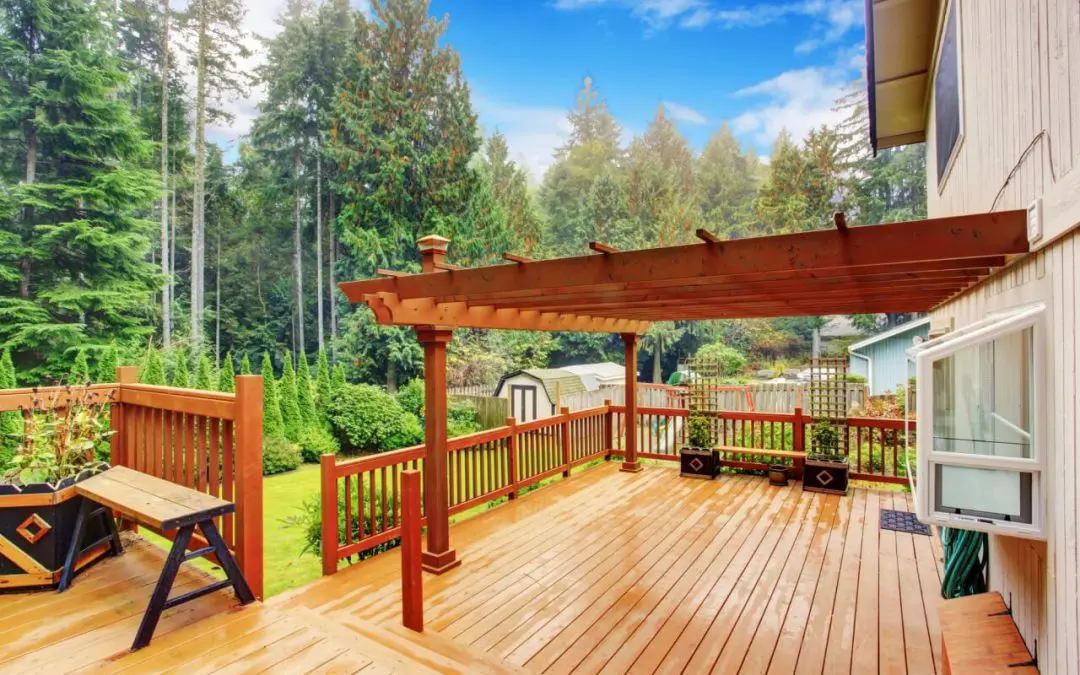When updating your outdoor living area, choosing the right decking material will make all the difference. With so many available options, deciding which is best suited to your needs can be overwhelming. In this article, we’ll explore four popular decking materials, their pros and cons, and help you make an informed decision for your home.
Pressure-Treated Wood
Pressure-treated wood is the most common decking material. It’s treated with chemicals that extend its lifespan and make it resistant to rot, insects, and fungal decay. The wood is affordable and easy to work with, making it a popular choice for DIY projects.
However, pressure-treated wood requires maintenance – it must be stained or painted every few years to prevent fading and splitting. Additionally, treated timber is not eco-friendly and may contain harmful chemicals that can leach into the soil.
Composite Decking Materials
Composite decking is made of a mix of wood fibers and plastic. It requires less maintenance and is more durable than pressure-treated wood. It resists rot, insects, and fading. Composite decking also doesn’t splinter or crack, so it’s safe for kids and pets.
Over time, the color of composite decking can fade, and it’s not entirely immune to mold and rot. Also, composite decking is more expensive compared to other popular decking options.
PVC Decking Materials
PVC decking is a synthetic material that is 100% plastic. It can withstand harsh weather conditions; unlike wood, it doesn’t rot or warp. PVC is also scratch-resistant and easy to clean. Another benefit of PVC decking is that it has a longer lifespan than other decking materials. However, PVC decking can be expensive and comes in limited colors compared to composite decking.
Aluminum Decking
Aluminum decking is durable, lightweight, and is known for its low maintenance needs. Unlike wood, it won’t splinter, rot, or decay and doesn’t require paint or stain. It’s a costly investment upfront, but its long-term value makes it an excellent investment. The disadvantage of aluminum decking is that it can get slippery when wet and doesn’t have as natural a look as wood or composites.
Ultimately, the best decking material for you will depend on your budget, style preferences, and the maintenance you’re willing to do. Each material has pros and cons that should be considered based on your lifestyle.
If you’re looking for a more straightforward option that needs less upkeep, PVC and composite decking are great choices. On the other hand, if you want a more natural look and have a limited budget, pressure-treated wood would be a solid option. If you’re looking for a long-term investment and don’t mind spending more upfront, aluminum decking may be your best choice. Take your time, weigh your options, and you’re sure to find the right fit for your property.
M&T Inspection Services offers home inspections to homebuyers and sellers in Indianapolis. Contact us to request our services.

